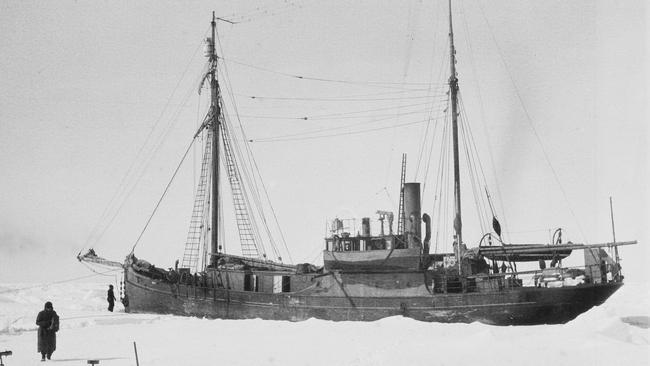Ernest Shackleton’s last ship found in Canadian waters
The ship on which Antarctic explorer Sir Ernest Shackleton breathed his last has been discovered, 62 years after it sank.

“You always want me to give up something. What do you want me to give up now?” As last words go, those of Sir Ernest Shackleton to his doctor are particularly memorable. Now the ship on which the Antarctic explorer breathed his last has been discovered, 62 years after it sank.
Quest, the steamship used for the Anglo-Irish adventurer’s last voyage in 1921-22, has been found near Labrador in Canada by an expedition mounted by the Royal Canadian Geographical Society. Shackleton died of a heart attack on board the vessel, which sailed on for decades before sinking in 1962.
The discovery comes 150 years after Shackleton’s birth and the search had the patronage of Alexandra Shackleton, 83, his granddaughter. “I’m thrilled,” she said. “Quest means a lot. My grandfather originally hoped to take it to Canada, so the fact that it is found there is very serendipitous.”
Quest was located at a depth of 390m and is in one piece except for the masts and rigging, which have collapsed. Plans are afoot to return as early as August and scan it in detail. There are no plans to raise the ship due to the risk of damage.
After its launch in 1917, Quest was used on polar expeditions before serving in World War II as a minesweeper. It was damaged and ultimately sunk by sea ice on May 5, 1962. The crew survived.
When he was 47, Shackleton took it to the Antarctic – five years after his escape from the disastrous expedition on Endurance. His last expedition signalled the end of the “golden age” of Antarctic exploration.
John Geiger, the Geographical Society expedition leader, said from Canada: “We are euphoric … It’s an incredibly important, historic ship.”
Funding for the search was strictly limited and, after setting off, the expedition suffered technical difficulties, resulting in the loss of two of the three days earmarked for the search.
“People were getting anxious,” team member David Mearns, an experienced shipwreck hunter, said. “We only had one shot. If we had come home empty-handed, it’s unlikely anybody would have given us a second go.”
Fortunately, the details of the wreck’s possible location proved accurate and within 16 hours of starting the search, Quest was located on sonar. “We did a very careful measurement of the dimensions and it was spot-on,” Mr Mearns said.
The Shackleton-Rowett expedition of 1921-22 set out to chart unexplored islands of the Antarctic. Initially Shackleton had intended to mount an Arctic expedition but, at the last minute, the Canadian government pulled the plug and he diverted south.
Quest proved ill-suited to the adventure. While the ship was relatively new, its engine was old. Shackleton was also showing worrying physical symptoms and, during a stop in Rio de Janeiro, suffered a probable heart attack.
The morning after the attack on December 17, 1921, he declared himself “better”. However, on the subsequent voyage his health did not improve, perhaps not helped by his decision to drink champagne to “deaden the pain”.
The expedition reached South Georgia but in the small hours of on January 5, 1922, doctor Alexander Macklin was summoned to Shackleton’s cabin, where the explorer was complaining of pains and asking what he should give up. He died at 2.50am.
Shackleton’s body was taken to Uruguay, where word arrived from Lady Shackleton that he was to be buried on South Georgia. Quest sailed on, but was frustrated by pack ice and ultimately returned to Britain without success.
The find follows the discovery of the wreck of the Endurance two years ago.
THE TIMES


